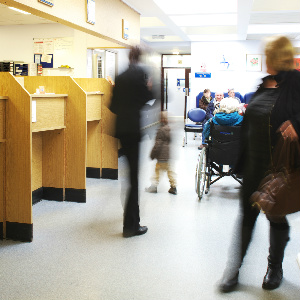NHS staff, including GPs, need to be given protected time and be encouraged to work on research projects to tackle the decline in the number of clinicians working in the field, a report has warned.
In addition, GP leaders should look at how primary care networks can help to evaluate research levels in primary care and encourage more GPs to take part, said the report by the Royal Academy of Medical Sciences.
Current pressures on an overstretched NHS workforce is making it increasingly difficult for frontline staff to find time to undertake or even engage with research, said the academy.
It said there had been a fall in the number of clinical academics – those staff working across both academia and in frontline NHS work – with only 0.4% of GPs taking part in research.
The proportion of clinical academic medical and GP roles in universities has declined from 3.7% of the medical and GP consultant workforce in 2004 to 2.6% in 2017.
Figures collated by the Academy of Medical Sciences show only 42% of GP practices are involved in research.
The report lays out a series of urgent measures required, including giving staff protected time to do research.
This includes proposals for a £25 million pilot scheme to allow one in five consultants one day off a week to do research in ten hospitals. The report adds that similar pilots should be done in primary care.
NHS leaders should work with the Royal College of GPs and BMA GP committee to develop metrics – perhaps through primary care networks – to evaluate the level of research activity in primary care and encourage GP practices to engage in research, the report said.
Enabling staff to take on roles with research time built in can be a way to improve recruitment and retention, the report said, with some doctors using research as a way to avoid burnout in their day job.
Academic clinical fellowships specialty training posts funded by the National Institute for Health Research have shown that combined clinical and research roles are popular.
ACFs in primary care – which combine 75% specialist clinical training and 25% research training – receive an average of six applications per post compared with 1.3 for traditional clinical posts, the report pointed out.
Professor Sir Robert Lechler, president of the Academy of Medical Sciences, said protecting and strengthening research is a win-win situation.
He said: ‘There is increasing evidence that shows that patients treated in research-active hospitals get better quality of care, even if they are not taking part in a research project.
‘Evidence also suggests that including research in medical roles makes it easier to attract and keep the best doctors. Research can also provide a coping mechanism to avoid burnout in NHS staff, so could make a dent in the £480 million yearly NHS spend on agency staff.’
RCGP chair Professor Martin Marshall commented: ‘Research is an essential part of primary care – it provides the evidence needed to develop new guidance and initiatives and to allow the profession to evolve to meet the changing needs of patients.
‘To this end, we support the recommendation in this report for protected time across the NHS for clinicians and our teams to engage in research.’
However, he stressed that unless the GP workforce crisis was addressed, GPs interested in research ‘simply won’t have enough time to take part’.
Pulse October survey
Take our July 2025 survey to potentially win £1.000 worth of tokens













